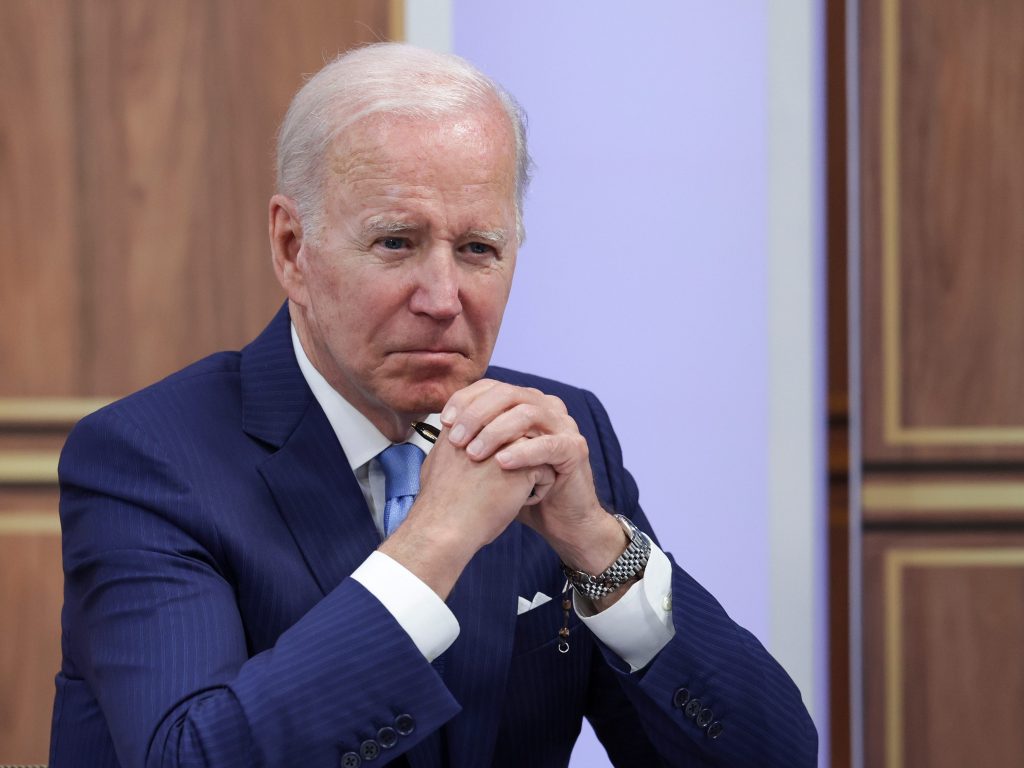- Major student-loan refinancing company SoFi expects student-loan payments to remain paused through 2023.
- Its CFO expressed that assumption during an early August earnings call.
- SoFi has previously lobbied Congress to resume student-loan payments.
A major private lender might not want President Joe Biden to keep extending the student-loan payment pause — but thinks it'll happen anyway.
On Tuesday, SoFi — one of the largest student-loan refinancing companies — held its second quarter earnings call to discuss how the company is faring two years into the pandemic. SoFi CEO Anthony Noto said during the call that the second quarter results "demonstrate the continued resilience of both our team and business and our ability to deliver another quarter of record revenue," but when it comes to the student-loan segment, there's still uncertainty following the over-two-year pandemic pause on payments.
Borrowers and lenders alike are awaiting guidance from Biden on whether payments will resume as scheduled after August 31, and while there is speculation of another possible extension following the Education Department directing loan companies to halt messaging surrounding repayment, the president has yet to give the final word. But SoFi anticipates borrowers will have another six months of relief.
"Our outlook also assumes the federal student loan payment moratorium will last until January 2023, which would result in a late Q4 2022 benefit based on the trend experienced in 2021," SoFi CFO Chris Lapointe said during the call.
SoFi was among several lenders that were lobbying Congress in March to resume student-loan payments. They argued that another payment pause extension would be "unnecessary" because borrowers were doing better financially than they were at the start of the pandemic, and Noto also wrote in a separate blog post that borrowers are "paralyzed with uncertainty" and Biden should put the "affluent and capable" borrowers back into repayment.
"If the government needlessly extends the broad moratorium for a fourth time, not only will it add to the country's inflation woes and unnecessarily give to the wealthy who are willing and able to repay their debts, but it will severely disrupt people's ability to make long-term financial plans," he wrote.
Scott Buchanan, the executive director of the Student Loan Servicing Alliance — a trade group that represents federal student-loan servicers — previously told Insider that at this point, loan companies are preparing to restart payments on September 1 because they have not been told otherwise.
"We need to be communicating with borrowers. We should have been doing that a month ago," Buchanan said. "And that needs to happen. At this point, until the White House gives any different guidance, payments resume on September 1."
Regardless, advocates and Democratic lawmakers are pushing for Biden to extend the pause and cancel student debt, as he is reportedly considering $10,000 in relief for borrowers making under $150,000 a year. At the end of July, 107 Democratic lawmakers wrote to Biden requesting another extension because "gas prices are still high, and many borrowers still have to pay exorbitant amounts each week in order to commute to their jobs."
"Resuming student loan payments would force millions of borrowers to choose between paying their federal student loans or putting a roof over their heads, food on the table, or paying for childcare and health care—while costs continue to rise and while yet another COVID-19 variant increases hospitalizations nationwide," they wrote.
Dit artikel is oorspronkelijk verschenen op z24.nl
